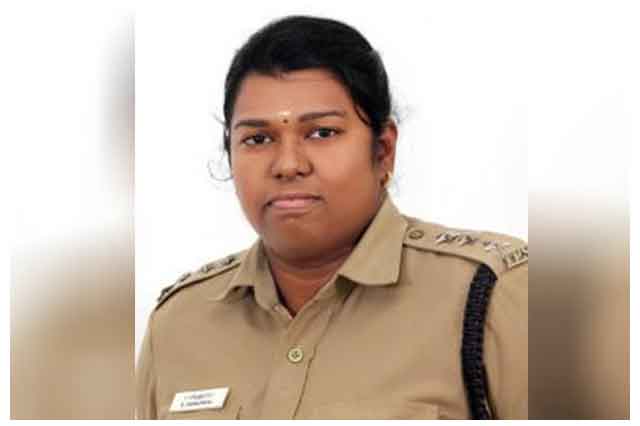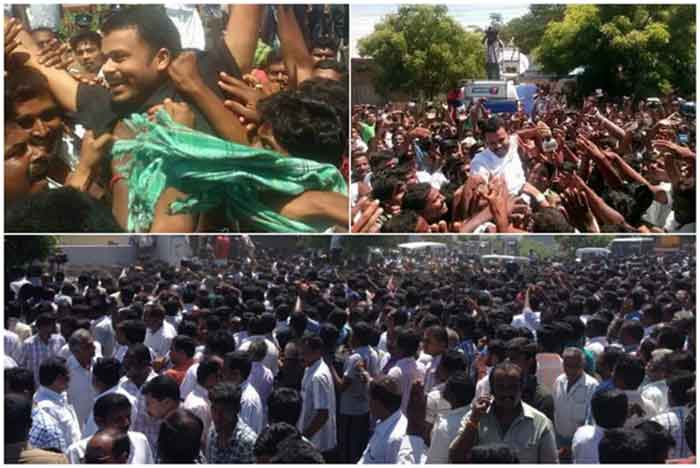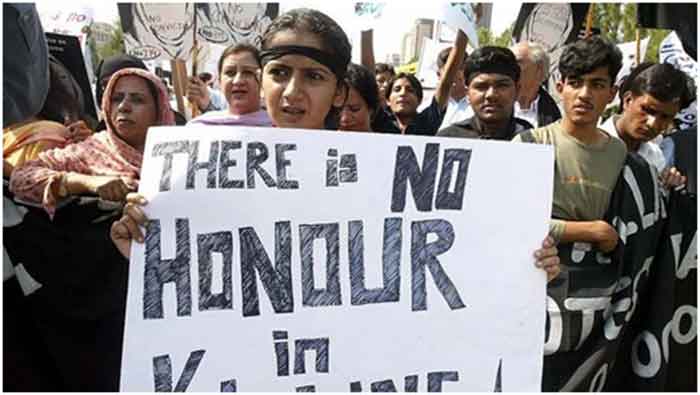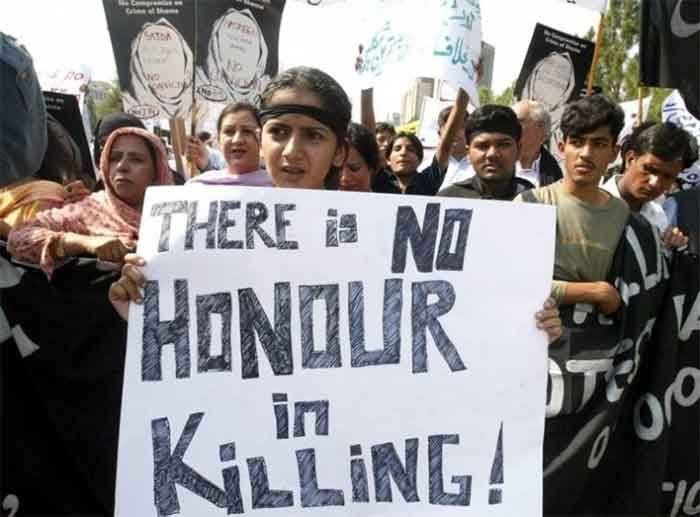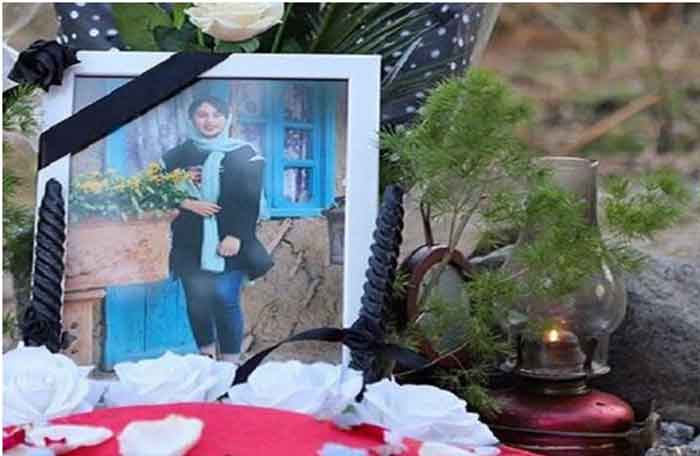
14- year-old Romina Ashrafi was beheaded by her father in the name of family “honor”
How can a young girl’s murder at the hands of her father be a story of love and honor? When a young daughter is brutally decapitated by her father in the name of family “honor,” does it paint a glorifying picture? Of course not. It is considered a horrifying story of a premediated killing. In late May, 14-year-old Romina Ashrafi was beheaded by her 37-year-old father Reza Ashrafi in a village called Lamir in northern Iran.
According to media reports and firsthand accounts by family members, Romina had run away from home with her boyfriend. The much older man supposedly was in love with her for a number of years and had proposed marriage. In Iran the legal age for marriage is 13. Child marriages can happen with the consent of a parent or guardian. Iranian media reported Romina’s father was not bothered by the age difference between his daughter and the boyfriend. He had intense dislike towards his family and forbade Romina to see him. Romina did not incline to live by his rules. Therefore, he became enraged and had brought her poison and asked her to kill herself. Romina decided to run away from home instead. Before running away she had left a note for her father. It read: “Baba you wanted to kill me. If anyone asks you where Romina is, tell them I am dead.”
Five days later, police had found her with the man and brought Romina home and left her in her father’s custody. Reza Ashrafi called a lawyer to find out what kind of punishment will he face if he kills his daughter to save his family “honor.” The lawyer assured him that as the “girl’s guardian he would not face capital punishment,” and most likely he will get between three and 10 years in prison.
Mr. Ashrafi’s relatives told an Iranian newspaper that Reza Ashrafi entered the bedroom of his daughter when she was asleep. According to media reports, “Romina’s mother Rana Dashti then heard her husband telling Romina to kill herself, otherwise he would do it.” And sure enough, he kept his promise and decapitated her with a farming sickle. Romina’s mother reportedly did nothing to save her daughter.
After Romina’s brutal murder, the entire family along with their relatives gathered and organized a funeral service in the name of the “honorable” father. How twisted and shocking is it to depict a daughter’s murder by her family by calling it a story of love in the name of family “honor”? The obituary notice below is in Persian and even though I cannot read it I could sense that the simple fact of Romina’s inhumane murder was not mentioned anywhere in the notice. To make sure I sent a screenshot to my Iranian friend Maryam in Michigan to translate it for me. She immediately replied saying what it meant. “It’s just an announcement for people who want to attend Romina Ashrafi’s funeral. In Iran, it’s the first three days and also the 7th night when people come and present their condolences. It was a very short notice.”
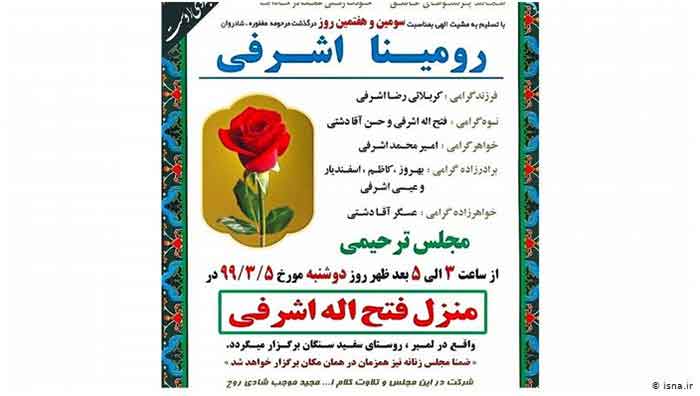
An obituary notice for 14-year-old victim Romina Ashrafi
The UN estimates that about 5,000 women worldwide die every year in the name of “family honor.” The number of deaths in the US is not known because there are no data-collecting mechanisms available. Mostly the immigrants from the North Africa and Middle Eastern origins brought this savage practice to America. This barbaric cultural and tribal practice originated in the Middle East namely in countries such as Albania, Iraq, Jordan, and Turkey. This cruel practice is also carried out in Egypt, Afghanistan, Pakistan, Sri Lanka and India. In India and Pakistan there are about 1000 “honor” killings that are reported per year. “The levels of such crime are less known in Bangladesh, but there have been cases in diasporic communities. So there is a potential risk there.”
“Honor” violence isn’t a race issue; it’s a human rights issue. Romina Ashrafi’s brutal murder falls into the category of a typical “honor” crime in the Middle East. Every day, young women are targeted by their biological families and are being murdered to preserve family “honor.” Usually a father, an older brother, an uncle or first cousins with permission from other family members carry out such a ghastly act. A mother often lures the victim in the house. Their rationalization is: by running away, being raped, or by leaving a marriage that woman has apparently “dishonored” the family. They are looked as “worthless” in the family because they cannot be married off and perceived as a burden to that family. Every year in the Muslim world hundreds of women die such horrific deaths when they supposedly “tarnish” the family name and bring “dishonor” to their respective families.
A few years ago in Iraq, a 19- year-old victim of “honor” killing was stoned to death in a public square for talking to a British solider. Around the same time a 16 year old Turkish girl was buried alive by her father for talking to boys. A couple of years ago, a Pakistani girl named Shahida in Karachi was shot at the back and killed by her missing sister’s vengeful in-laws in the pretense of adultery. It happened because her mother refused to have her married to another son in that family for she sensed foul play in the disappearance of her older daughter.
Since the Islamic Revolution in 1979, Iran has regressed back to being a patriarchal society where women are repressed and devalued. It is not as extreme as it is in Saudi Arabia but the value system is close enough. “But women in Iran and Saudi Arabia have one thing in common: They aren’t considered to have the same rights as men, due to laws deriving from sharia, or Islamic law. All the important decisions are made by their fathers or husbands, even after death. Iran’s Islamic code of criminal law enshrines the principle of retribution. That means if a girl or a woman is a victim of a crime, her father or husband decides whether the perpetrator is punished – frequently with the death sentence – or pardoned.”
Despite progress Iranian women remain regressed in society and are not equal to men. After the Islamic Revolution, many young people like my friend Maryam moved to the West to escape the atmosphere of fear created by Ayatollah Khomeini, Iran’s supreme leader and the founder of Islamic Republic of Iran. One of the first decrees imposed by him was that women in Iran must wear the veil, whether they are Muslim, Christian or Jewish. They have to abide by strict sharia laws and have to wear headscarves and the traditional head-to-toe cloak, when they are out in public. They need to seek permission from a male member if they plan to travel outside the country, want to work outside the home or seek a divorce. “In Iran, women have been allowed to drive since 1940 and were given the right to vote and be elected to office in 1963. Half of the university degrees in Iran are held by women.” Asieh Amini, an author and women’s rights activist, told DW in an interview, “It doesn’t matter how well-educated Iranian women are or how much they have achieved through their strong status in civil society, in the current political system, men have not only tradition on their side but the law as well,” said Amini, who fled Iran after the 2009 unrest.
“Horror over the killing of Romina Ashrafi, a round-faced high school student with a bright smile, was nearly universal, condemned by liberals and conservatives alike,” reported the New York Times. Romina’s father is in jail awaiting trial. Her case highlights the irrationality of Iran’s faulty judicial system and how the regime is really not able to protect the rights of women. Many fathers in Iran who do “honor killings” literally get away after murdering their daughters as they are entrusted with the decisions to pardon the perpetrator. There are many loopholes in the justice system. According to a study carried out by the Iranian Police Academy, “up to 45% of murders committed in several particularly tradition-bound provinces in the west and south of Iran are honor killings.” The traditional Iranian society is based on the premise “Honor is a woman’s most important asset,” said Iranian journalist Mahrokh Gholamhosseinpour, who now lives in the US. “A man whose wife or daughter has lost her honor is rejected, humiliated and ignored by such a society.”
“In most cases, the father or grandfather enlists a brother or a cousin of the “dishonored” girl to carry out the murder.” Usually a knife, a gun, a machete or strangulation is some of the choices to murder the woman. Once the killing is done, the head of the family takes it upon himself to pardon the killer. Often he himself does the grizzly act. “In most honor killings, there are no complaints by the plaintiff or guardian. And the murderer is quickly released at the agreement of both parties,” said Gholamhosseinpour. She had done years of research to find out the root causes of honor violence. “Romina’s elopement or abduction would have probably not resulted in her murder if she and her family had lived in a larger city,” said Gholamhosseinpour. Cases of honor killings have been the most serious violation of human rights. Unfortunately, the numbers of female honor victims in Muslim societies are a lot higher than what the studies show. Many times such killings go unreported as society protects the perpetrators. In rural Iran more often than not such killings are not usually reported. People simply get away after committing murder in the name of “family honor.”
The unthinkable killing of Romina has shaken the Iranian society to the core. People across Iran and across social media platforms have condemned this killing. Most of the mainstream news media in Iran reported the violence and demanding laws to be changed and the perpetrator to be held accountable. Iran’s President Hassan Rouhani finally has ordered his Cabinet to introduce a much needed reform to rectify the existing law of “honor killings.” Giving the perpetrator more stringent punishment might curve the violence and that is of course what he is aiming for but a radical reform proposal would be the best course of action to protect women against such murders.
Hassan Rouhani with more moderate political stance very well knows that the proposal to amend the current laws to protect and safeguard women will be immediately rejected by the hard-liner Islamists who are in charge of Iran’s judiciary. This bill has been pending approval in the Parliament for the past eight years. A prominent rights activist and former lawyer Faezeh Hashemi said that “passing the bill without changing the punishment amounted to window dressing and would offer no meaningful protection for women and children.” Conservatives argue that such laws “aim to imitate Western values and goals that contradict Islamic principles.” They also defended the existing laws and blamed Romina for “promiscuity and disobeying religious and cultural strictures.” “For the conservatives, the answer to the problem of honor killings is simple: having girls marry at as young an age as possible.”
“Honor killing” is reprehensible and honor violence is nothing short of premediated murder. In Iranian judicial system, such a crime is not considered premeditated murder, but a crime of passion. The benefit of eliminating premeditation results in limited prison terms. These kind of tribal practices are carried out against women who are raped, committed adultery, wanting to leave an abusive spouse, loved the wrong person, talked to a strange man, for wearing Western style clothing, listening to rock music, wearing makeup, for refusing to wear a headscarf, and in Romina’s case running away from home with a man.
Though the culture urges women to cover their head and strictly forbids not showing their hair, Romina used to show her hair under her scant head scarves and posted her photos on the internet. That became an anathema. Her rebelliousness against the rigid rules laid out by a traditional society and her elopement with an older man had ultimately cost her life. She became a victim of a savage murder in the name of “family honor.” Her poor life ended before she completed her life’s journey. Did killing Romina in cold blood restore some of the “honor” supposedly lost by the family? No. It just shattered a family completely and utterly. Her precious life was brutally cut short for wanting to assert her independence. Romina’s father Reza Ashrafi took away her dream of living a life of freedom with the man she loved.
Zeenat Khan writes from Maryland, USA
SIGN UP FOR COUNTERCURRENTS DAILY NEWSLETTER



